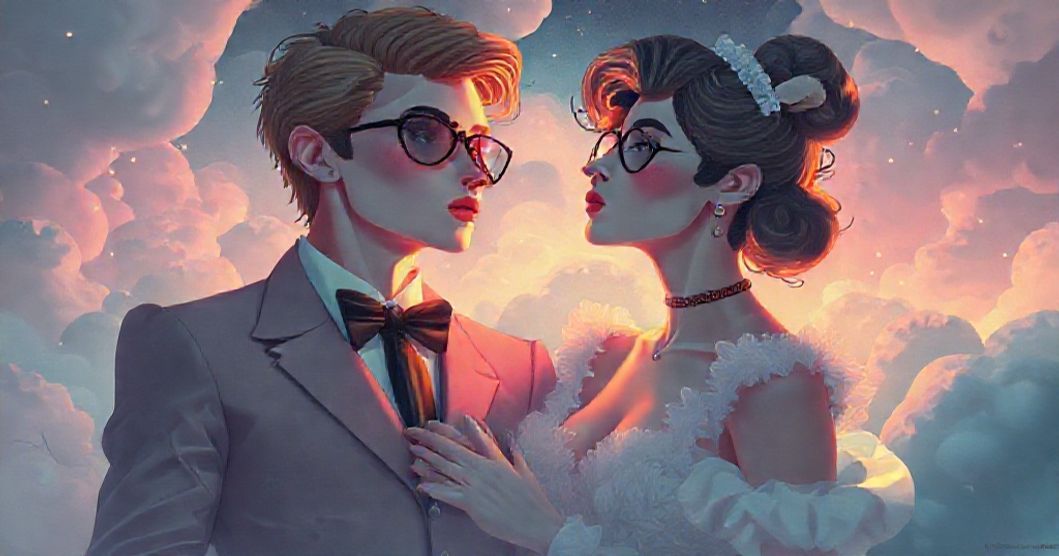Part 1: Dream Presentation
Dreams often serve as mirrors reflecting our innermost desires and conflicts, even when they seem to defy logical explanation. This particular recurring dream offers a fascinating glimpse into the unconscious mind’s negotiation between identity, creativity, and societal norms. Consider the following narrative, which captures the dreamer’s experience with vivid detail and emotional depth:
For the past several nights, I’ve found myself in the same recurring dream—a surreal transformation that unfolds with surprising clarity and emotional resonance. Each time, I wake with a sense of both familiarity and confusion, as if I’ve glimpsed a version of myself I never knew existed. The setting is always a dimly lit bedroom, its walls lined with posters of musical artists whose names blur at the edges, though I recognize the faint glow of stage lights reflected in the mirror. My hands, steady despite the flutter of nerves in my chest, reach for a collection of makeup brushes and bottles that somehow materialize on the vanity—colors I’ve never used before, yet somehow know exactly how to apply. I’m wearing a loose-fitting white shirt, but the fabric feels foreign, as if it’s borrowed from someone else’s closet. The process begins slowly: a soft brush dips into a palette of deep purples, applying color to my eyelids with deliberate strokes. My fingers tremble slightly as I blend, the cool sensation of the makeup contrasting with the warmth of my skin. I notice my reflection in the mirror isn’t just my reflection—it’s Megurine Luka, the Vocaloid character I’ve loved for years, whose flowing teal hair and ethereal stage presence have always felt like a kind of artistic escape. As I work, I can feel my jawline soften, the stubble on my face vanishing beneath a layer of translucent powder. My hands, which usually hold tools or play guitar, now hold delicate brushes with practiced precision. The transformation feels both effortless and transformative, as if I’ve stepped into a different skin entirely. I trace the outline of my lips with a red pencil, the color vibrant against my natural tone, and suddenly I see myself not as a 20-year-old brown male with a beard, but as someone whose beauty is defined by fluidity and artistry. The dream always ends with me standing in front of a mirror, tears pricking my eyes—not from sadness, but from a bittersweet recognition. I feel a surge of pride, then confusion, as I remember I’m straight, a man with a beard, who likes her music but has never considered myself in such a way. The dream lingers like a half-remembered song, leaving me to wonder: why does this recurring vision feel so real? Why does the idea of becoming someone else, even for a moment, feel so necessary?
Part 2: Clinical Analysis
Want a More Personalized Interpretation?
Get your own AI-powered dream analysis tailored specifically to your dream
🔮Try Dream Analysis FreeSymbolic Landscape: Decoding Cross-Dressing and Megurine Luka
The recurring nature of this dream suggests it carries significant emotional weight, and its symbols offer rich insights into the dreamer’s inner world. Cross-dressing in dreams rarely indicates a desire to transition physically, especially when the dreamer identifies as straight and male. Instead, this imagery often represents a yearning for self-expression, creativity, or a temporary escape from rigid gender roles. The dreamer’s connection to Megurine Luka, a fictional Vocaloid character, adds another layer of meaning: characters like Luka often embody ideals of artistic freedom, beauty, and androgynous presentation that resonate with the dreamer’s own creative impulses. The act of applying makeup and transforming appearance symbolizes a desire to explore aspects of self that feel disconnected from societal expectations of masculinity. The trembling hands during the makeup application reflect the nervous excitement of stepping outside one’s comfort zone, while the eventual tears of recognition suggest an emotional breakthrough—a moment of seeing oneself in a new light. The bedroom setting, a private space, reinforces the dream’s focus on internal exploration rather than external judgment.
Psychological Perspectives: Jungian and Freudian Lenses
From a Jungian perspective, this dream may reflect the process of integrating the
